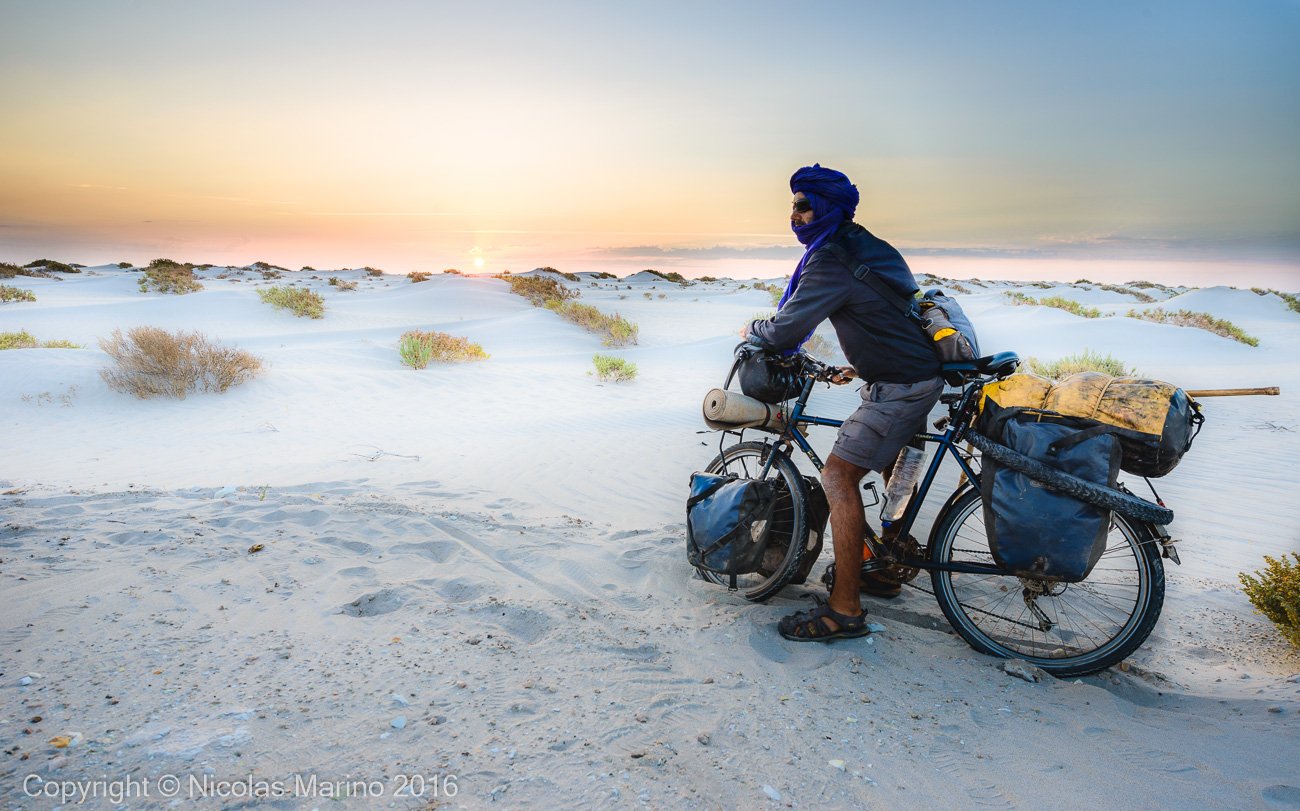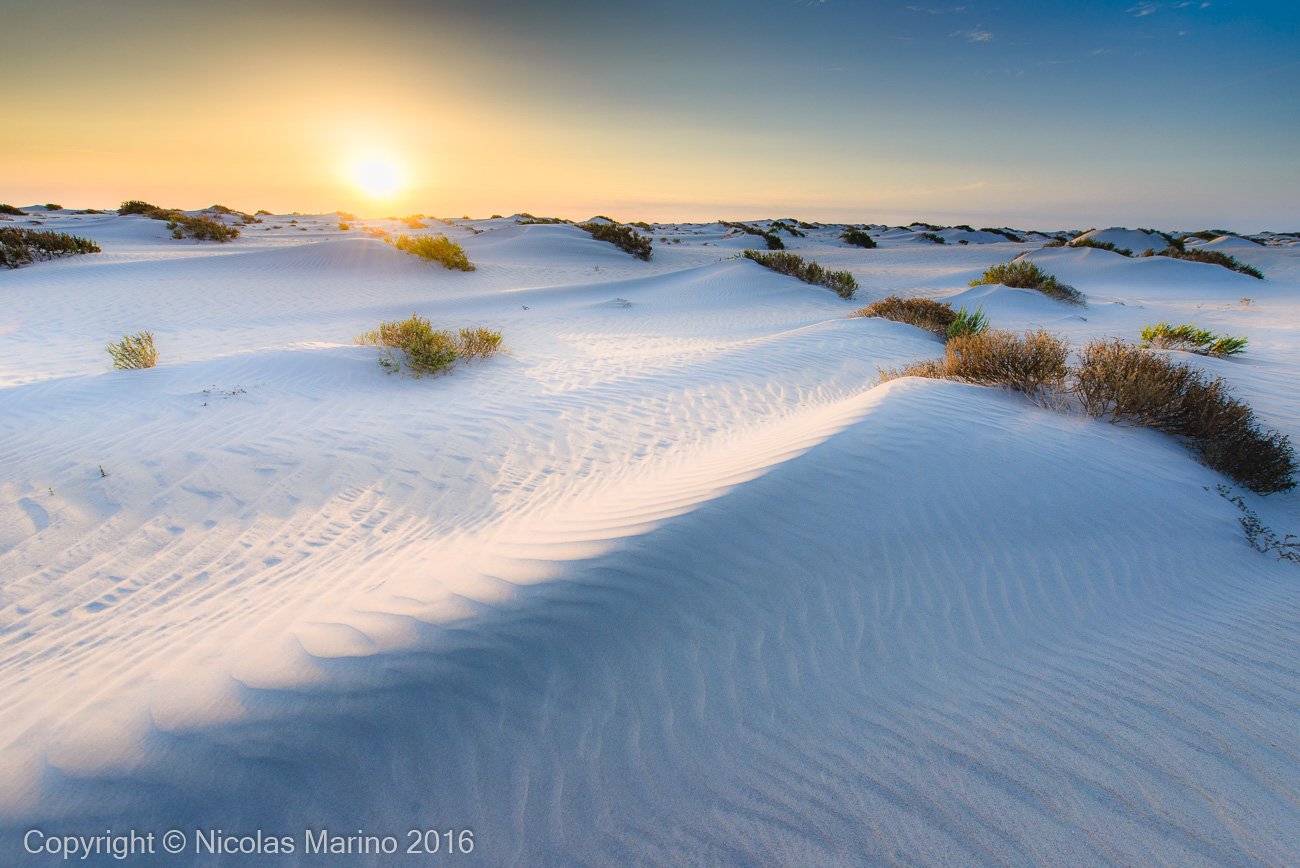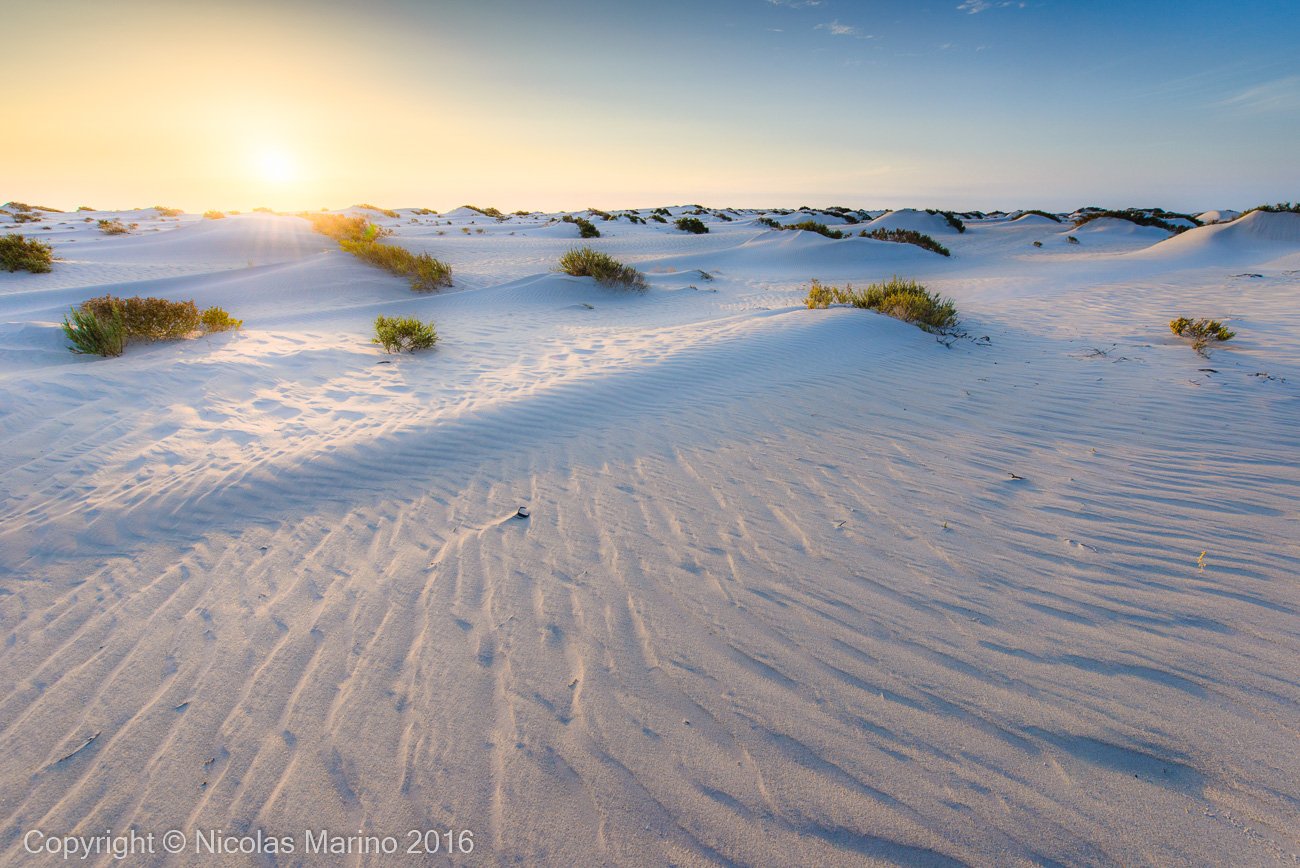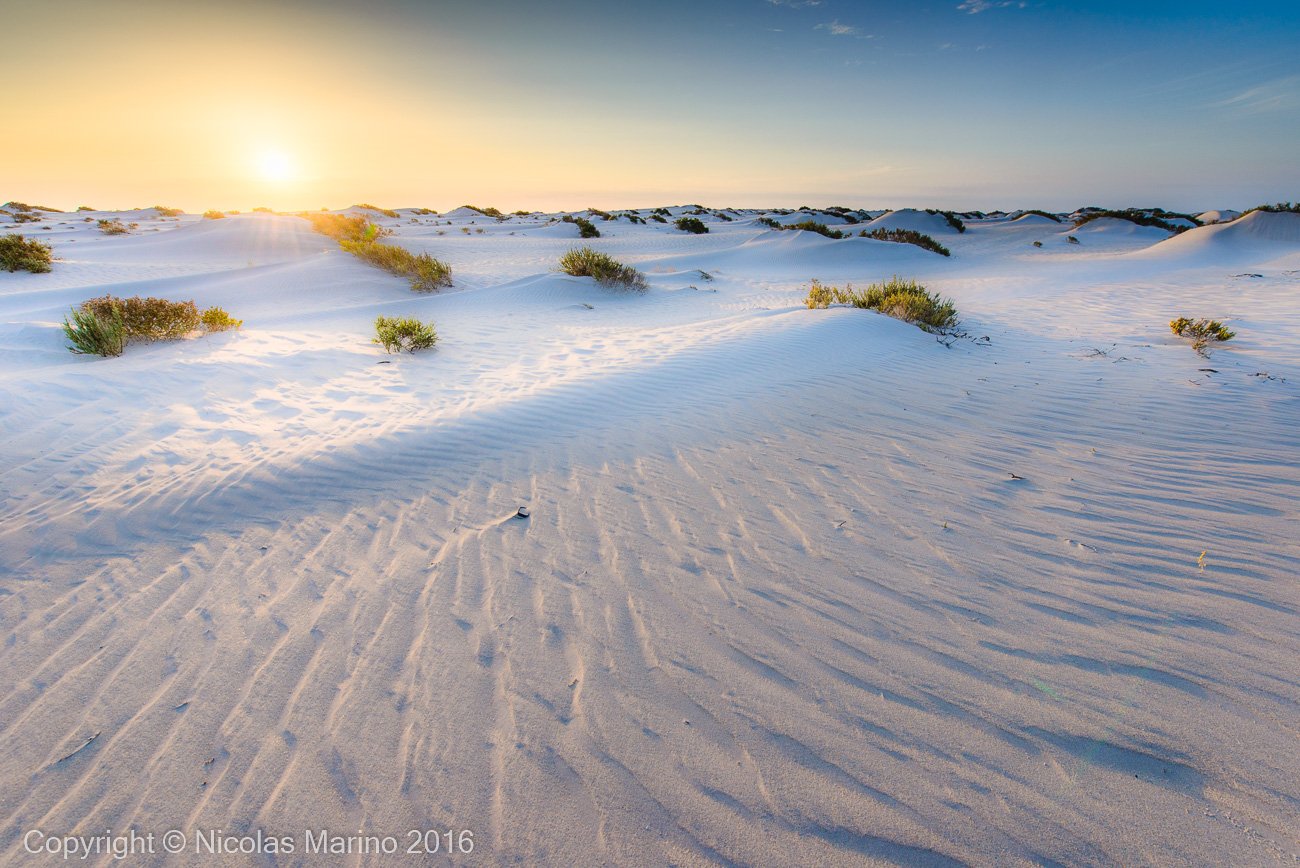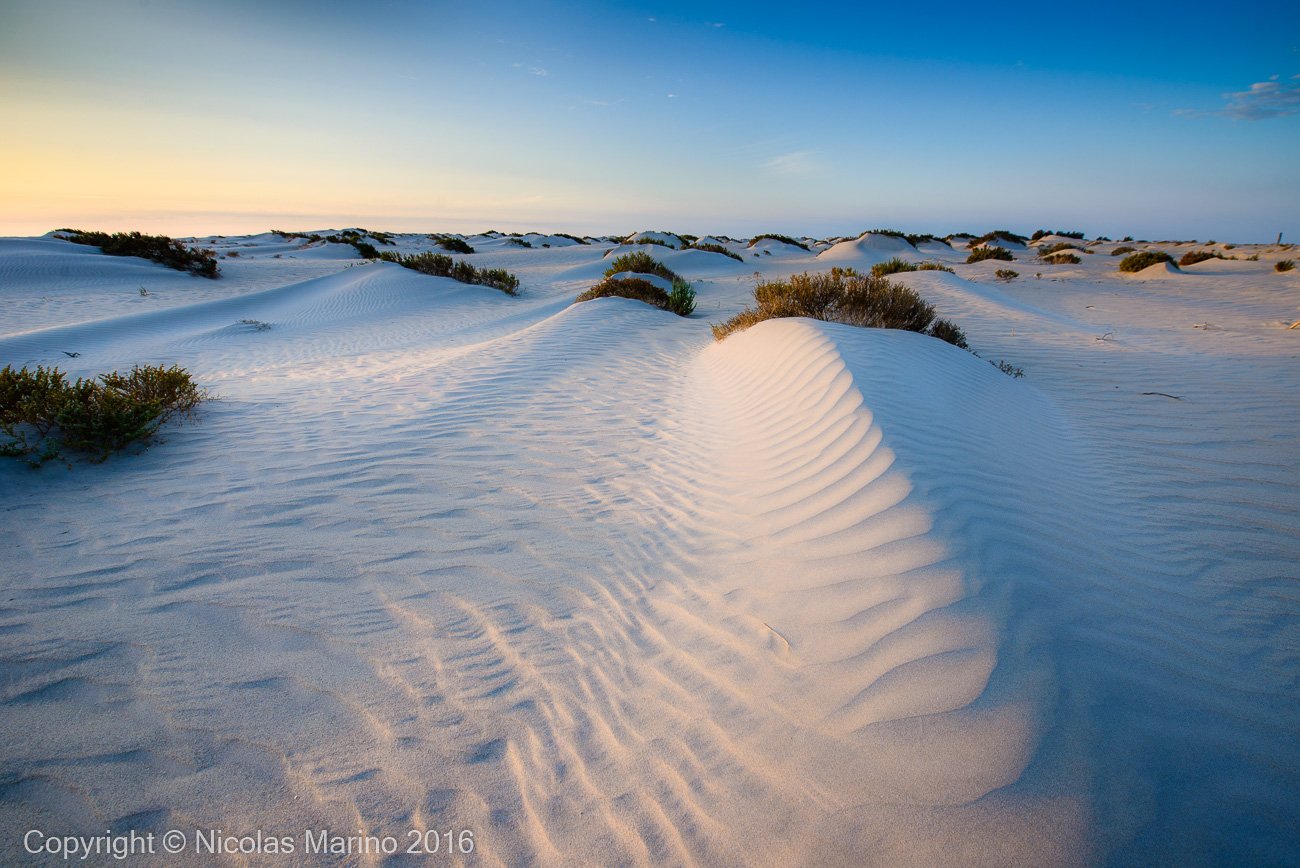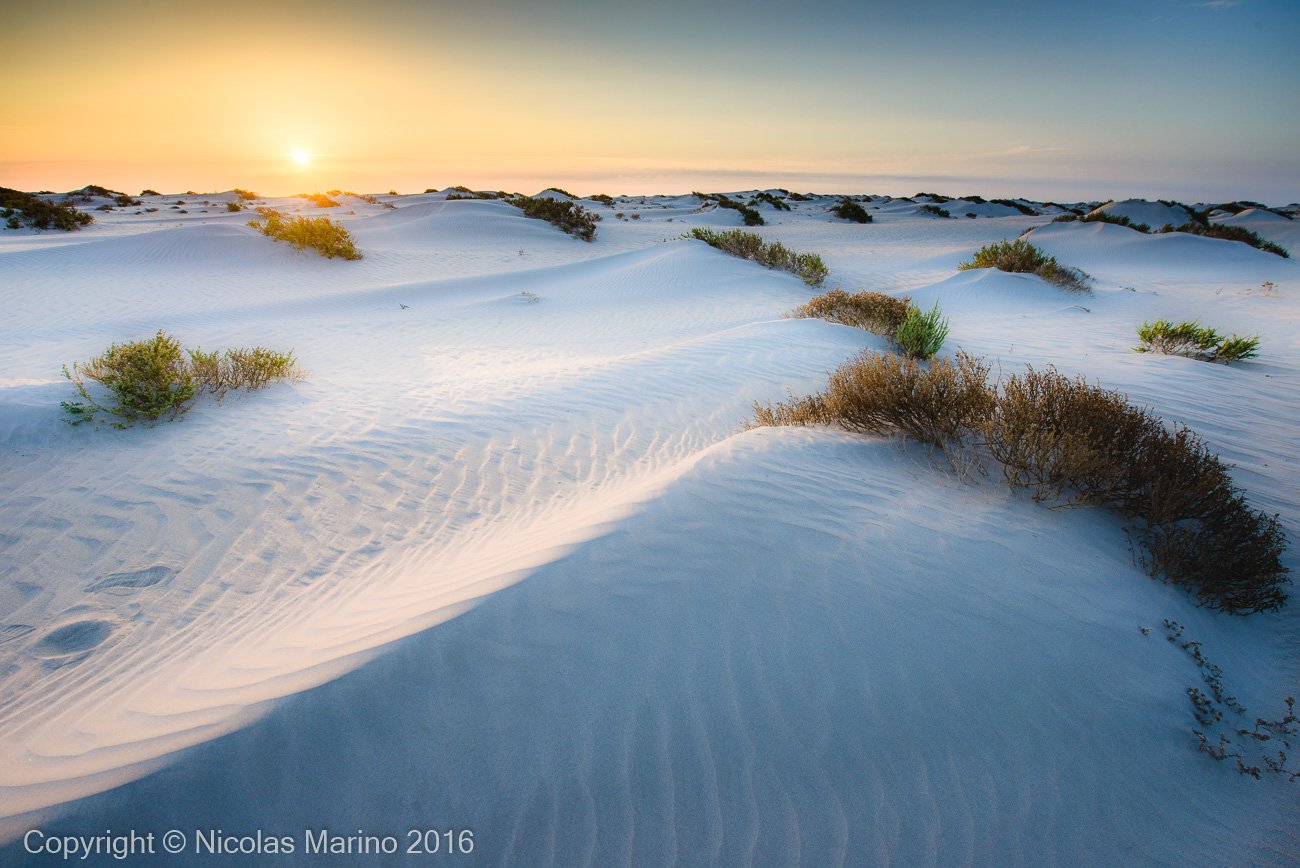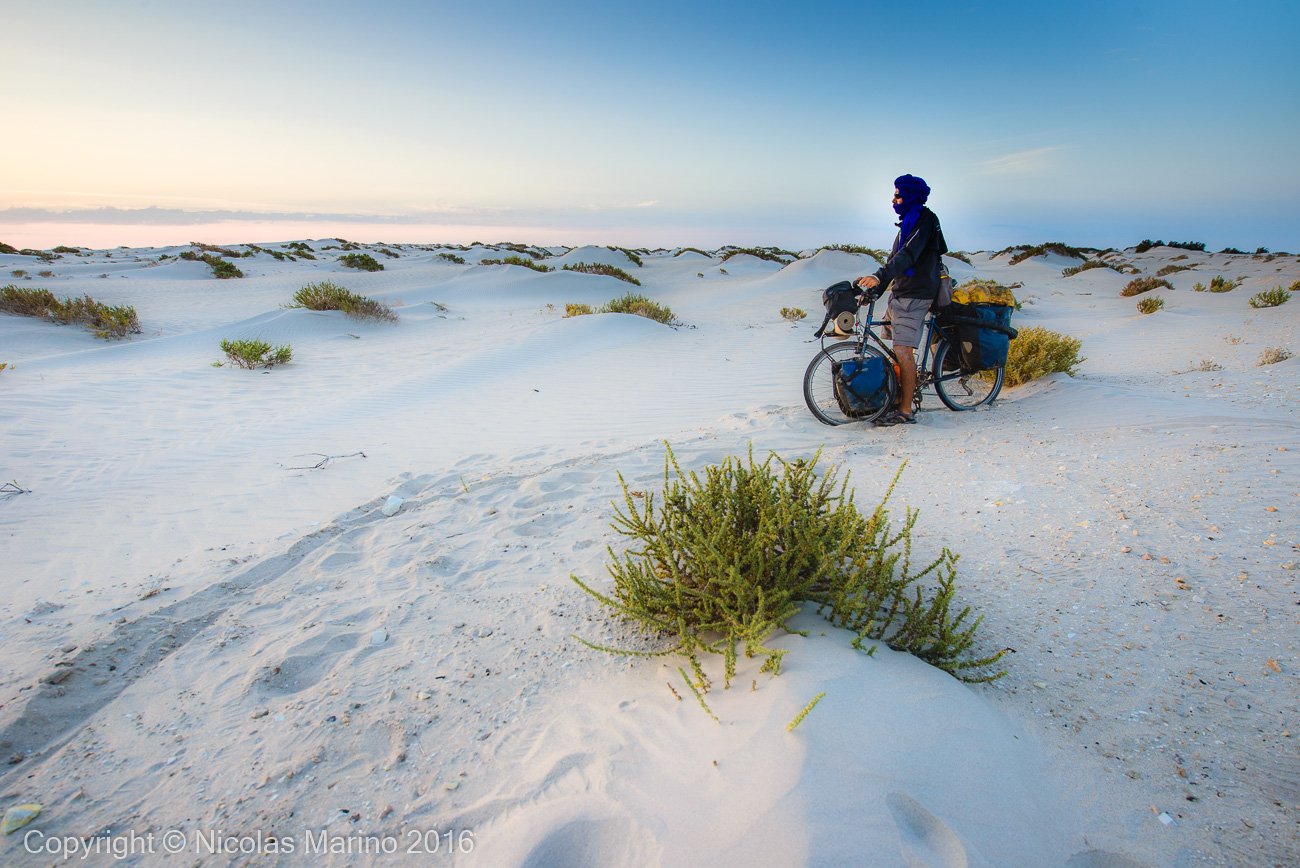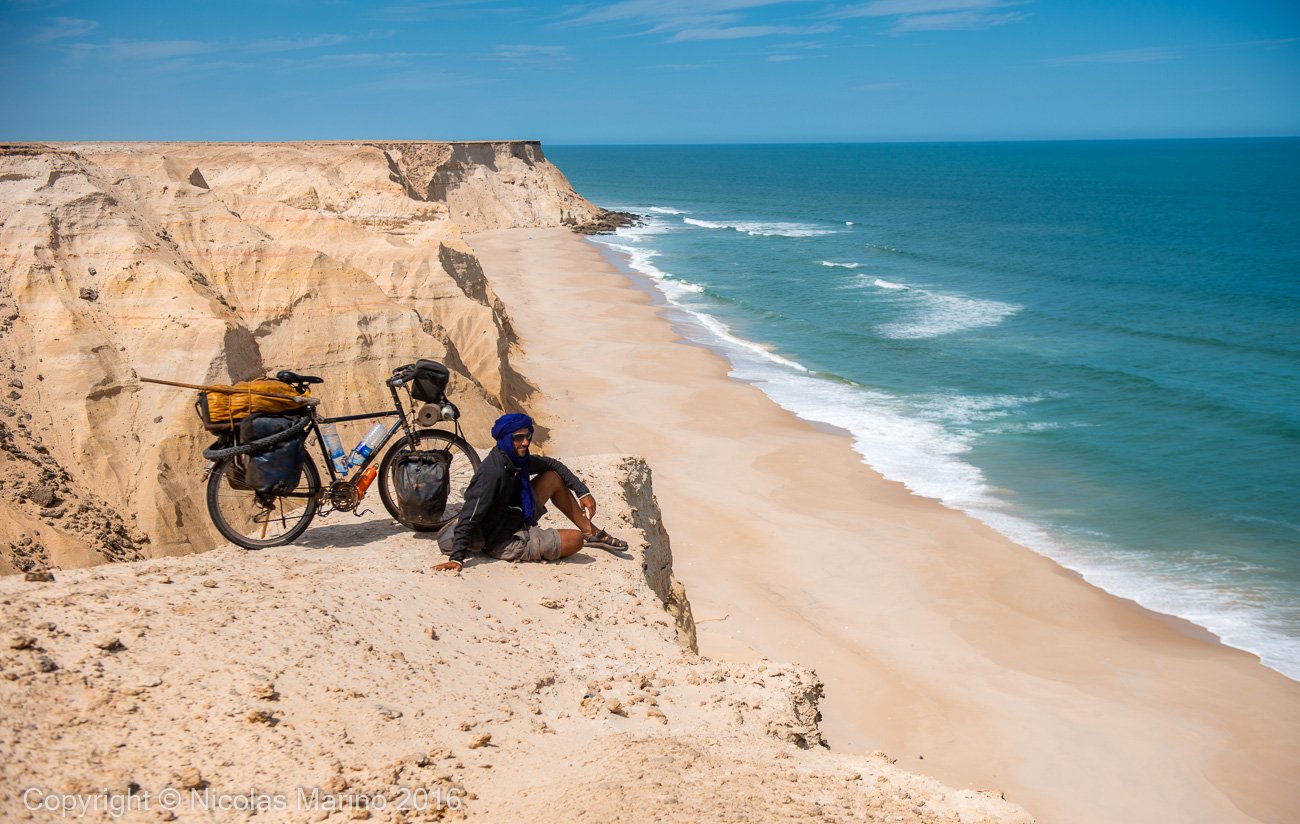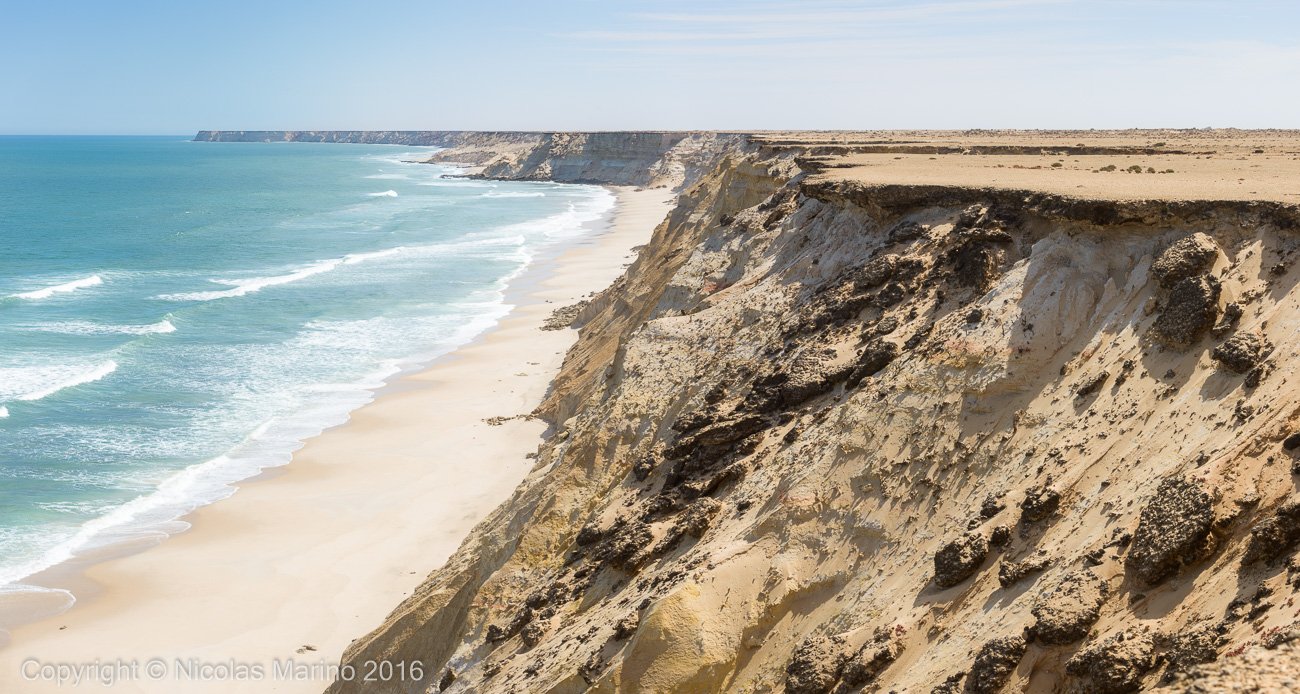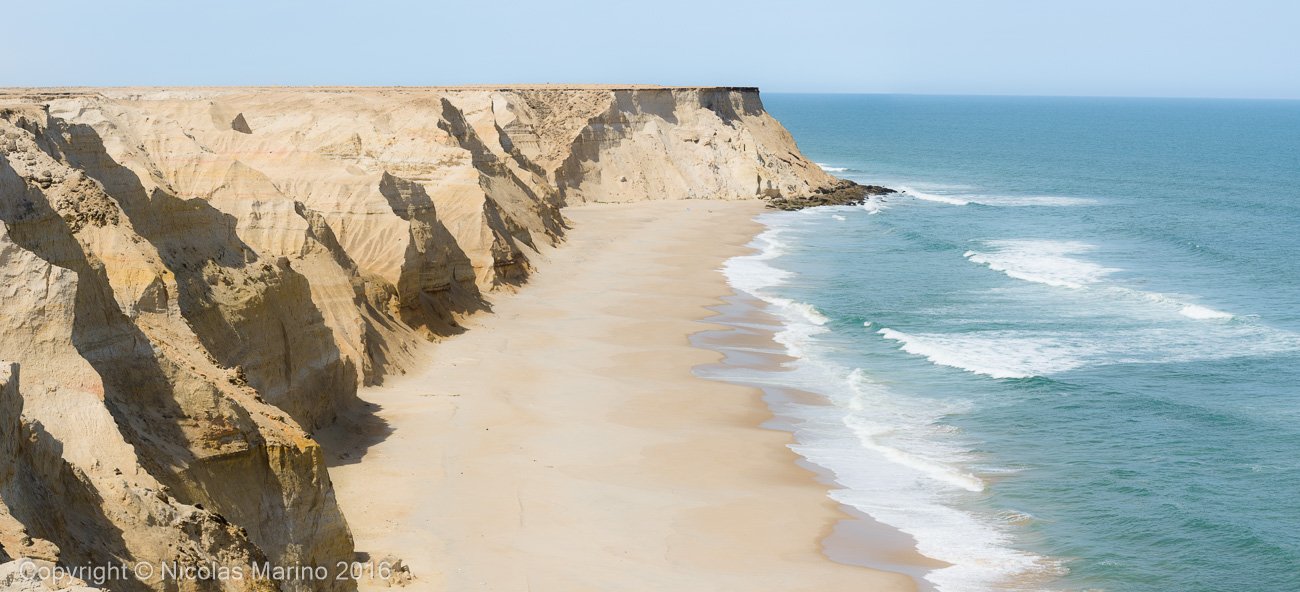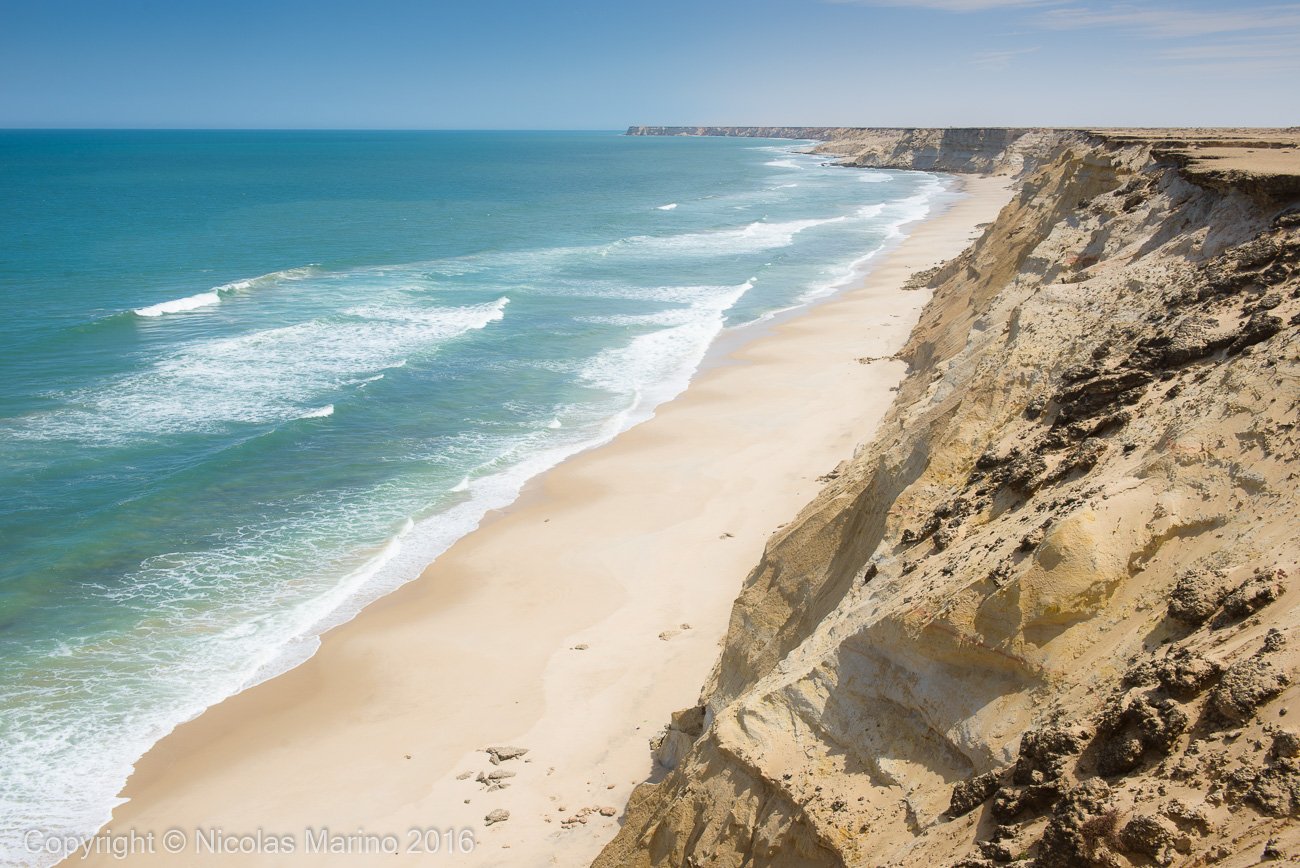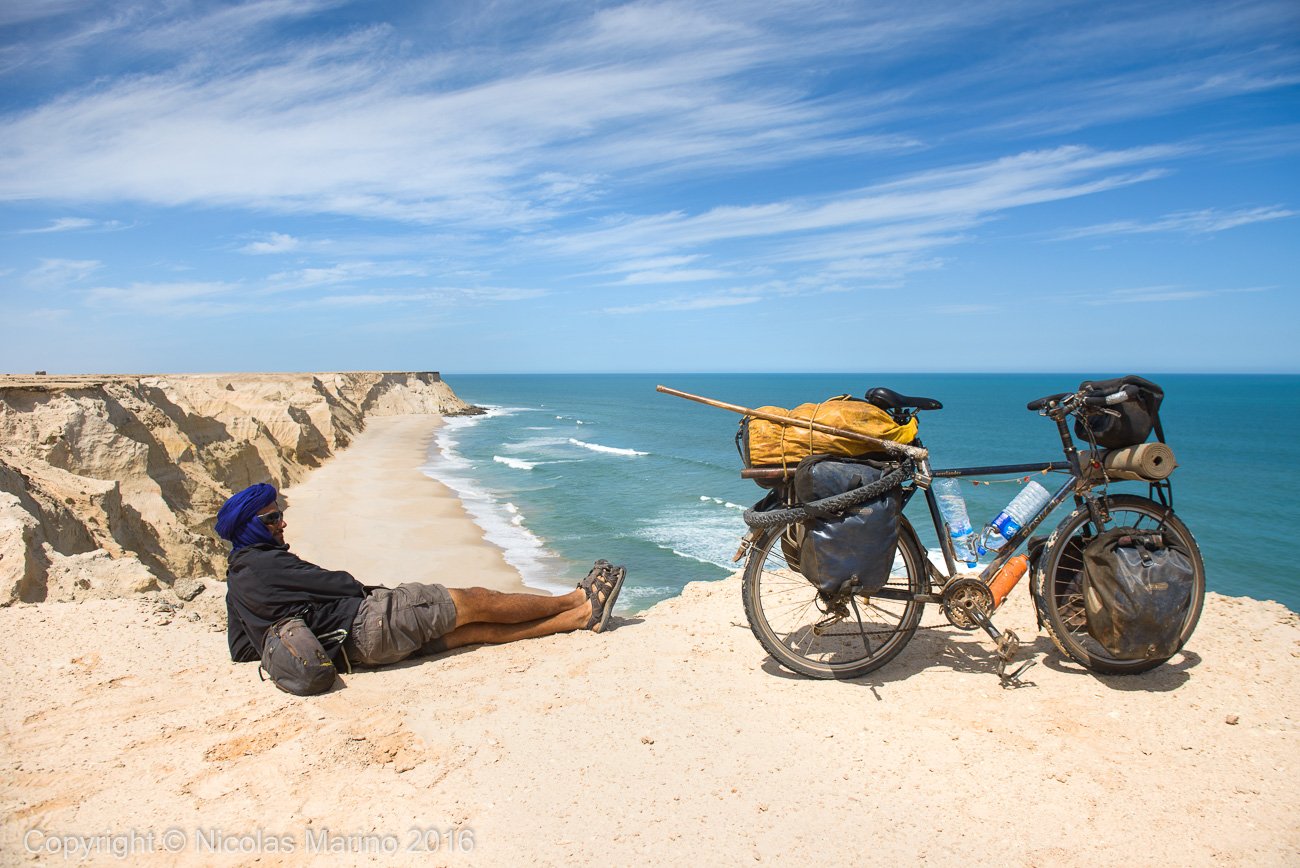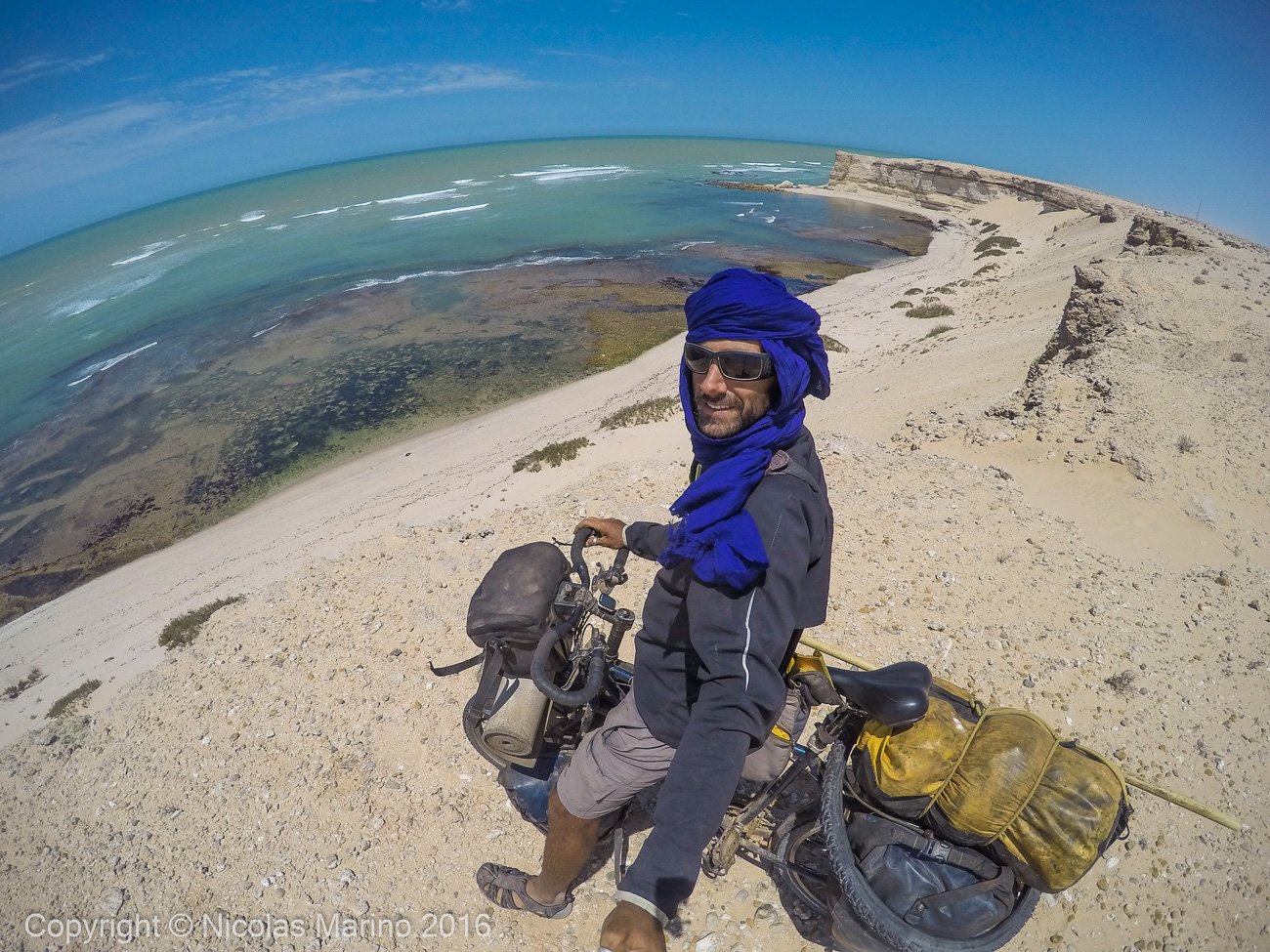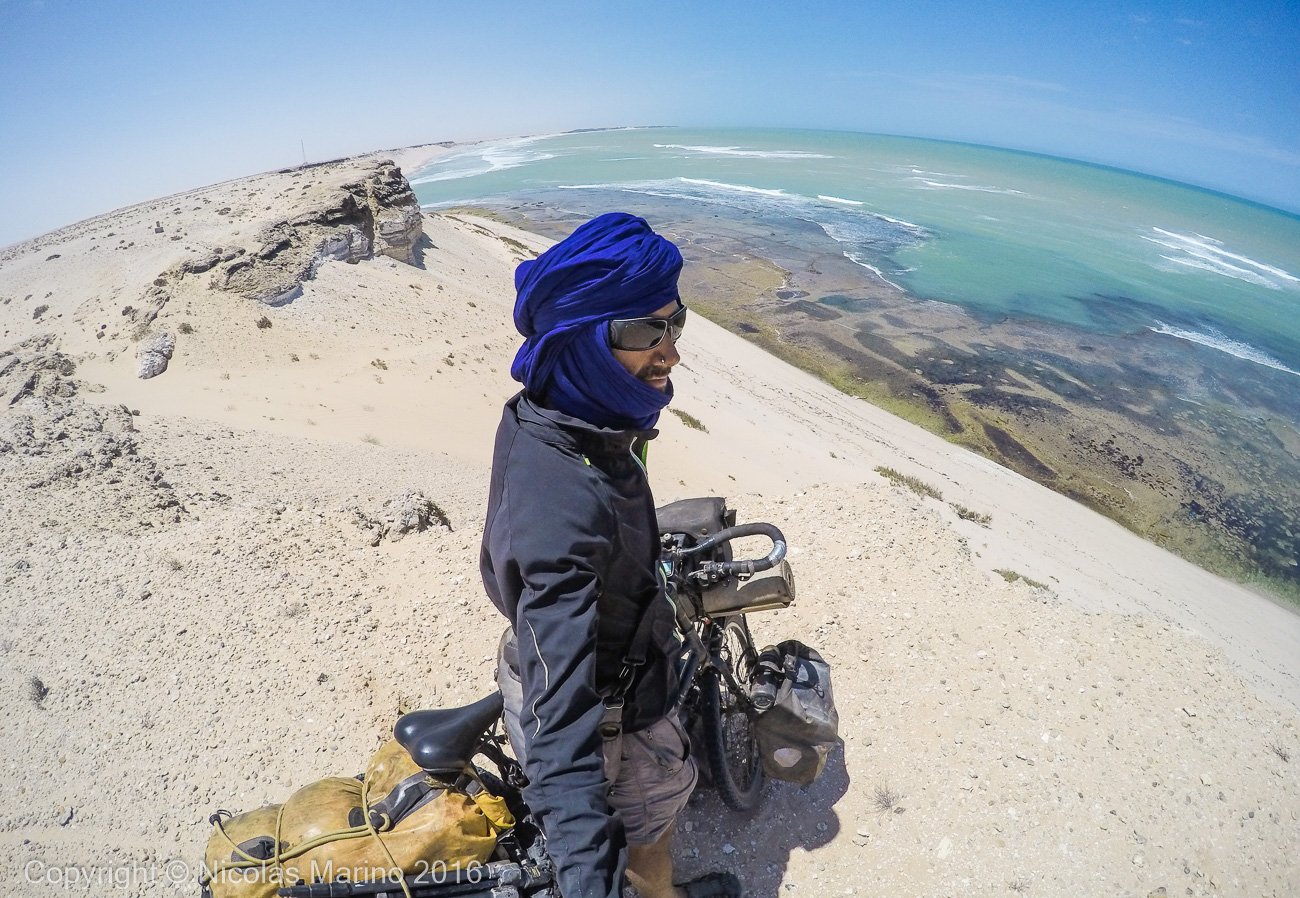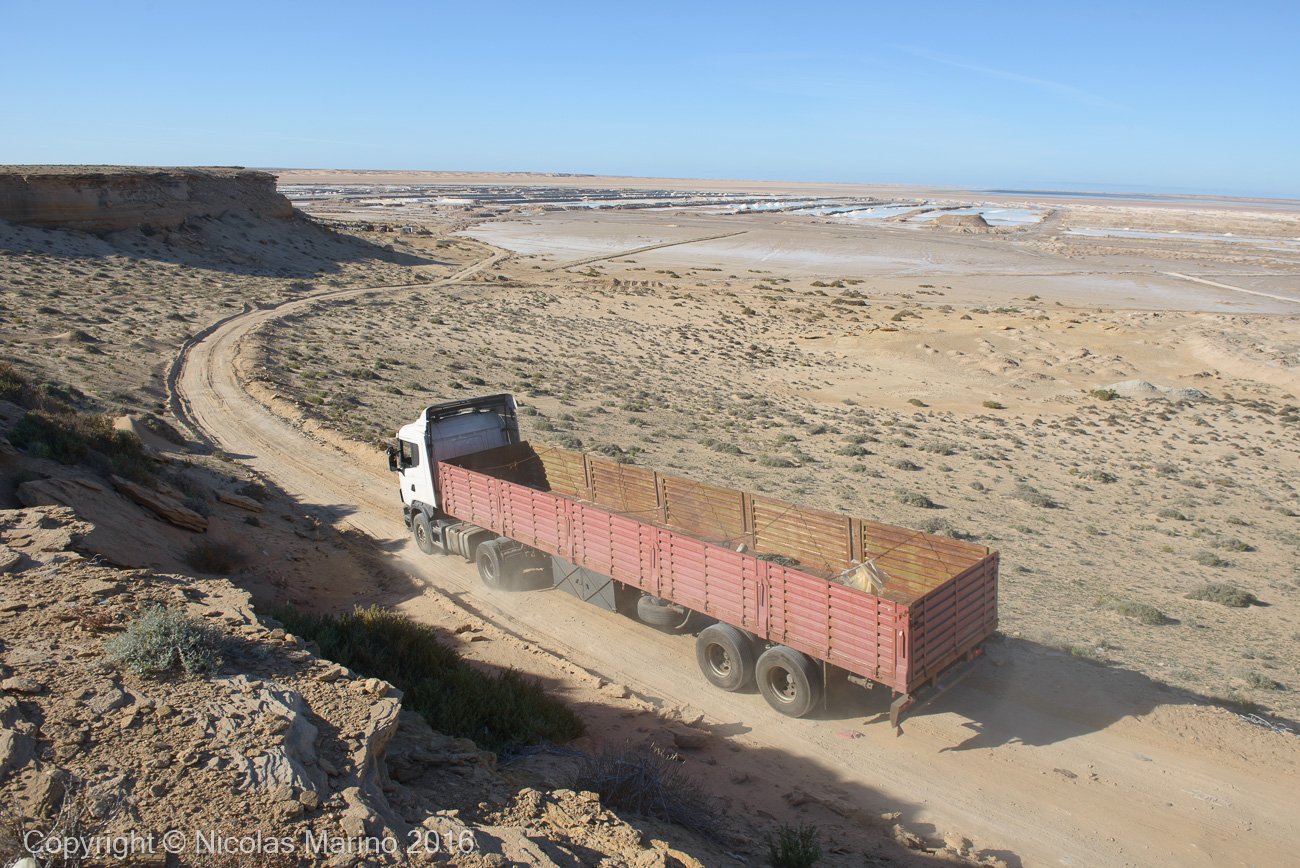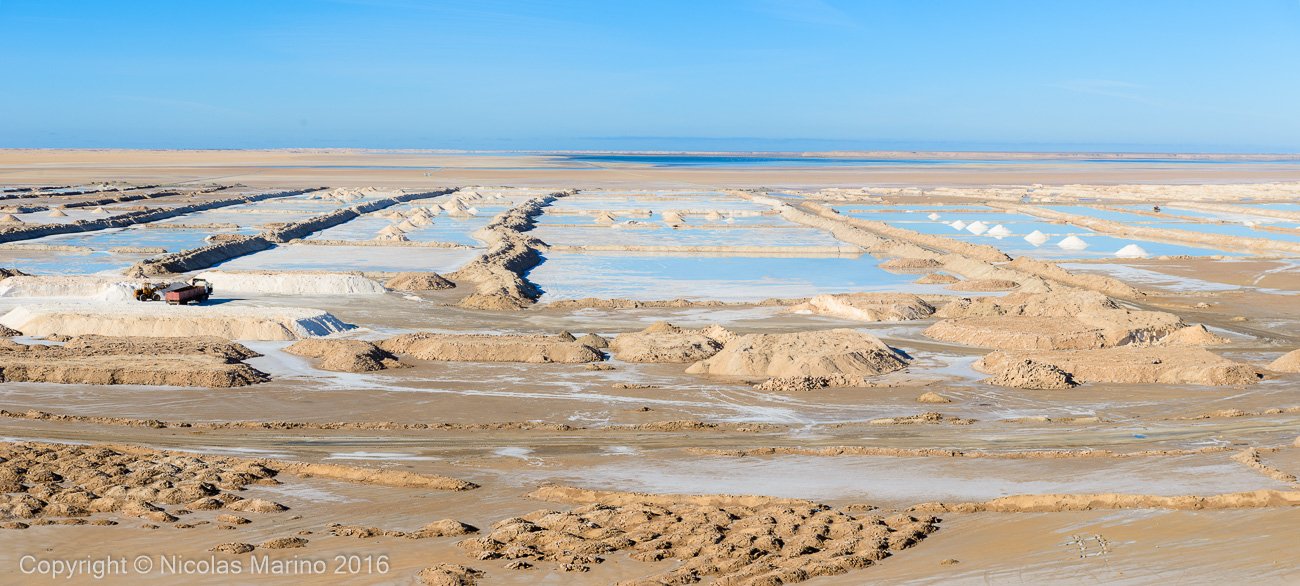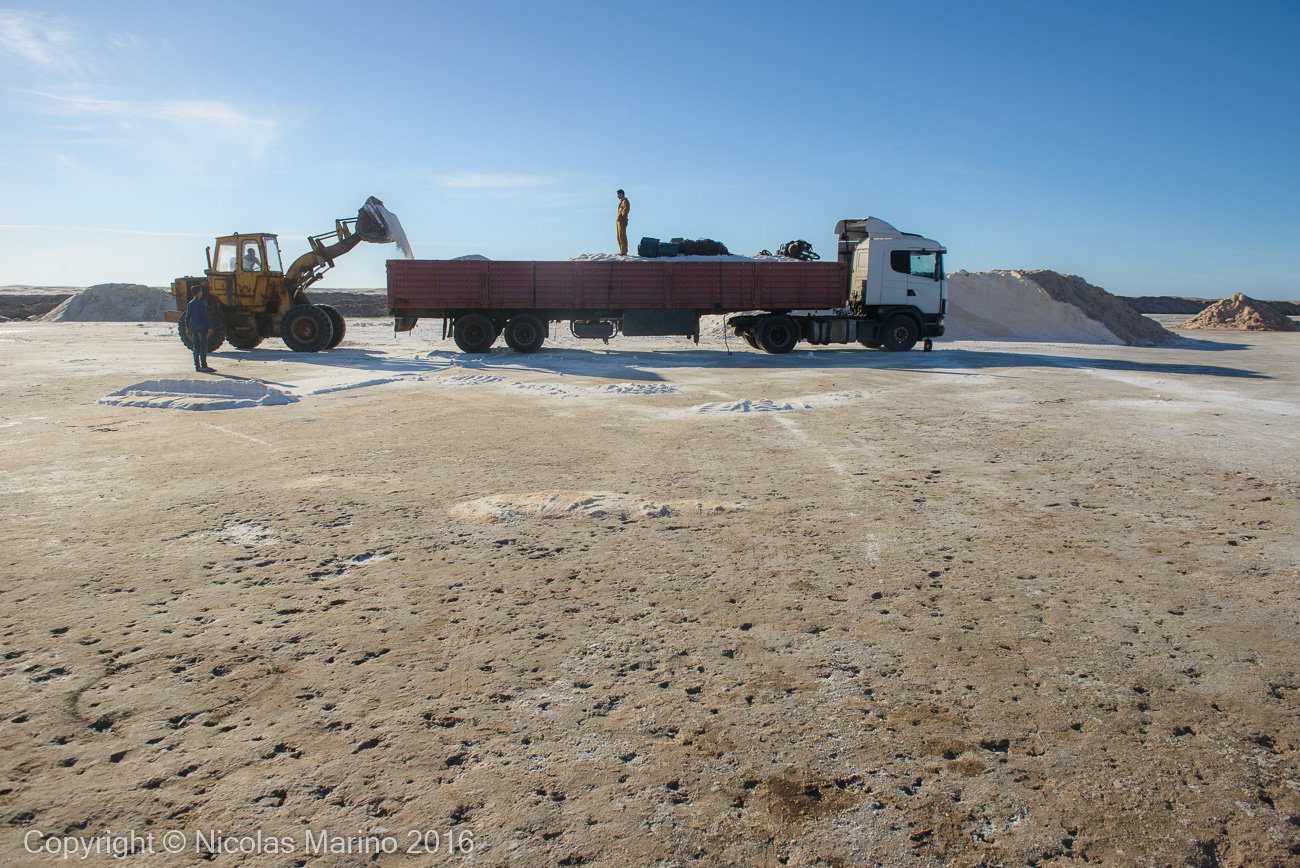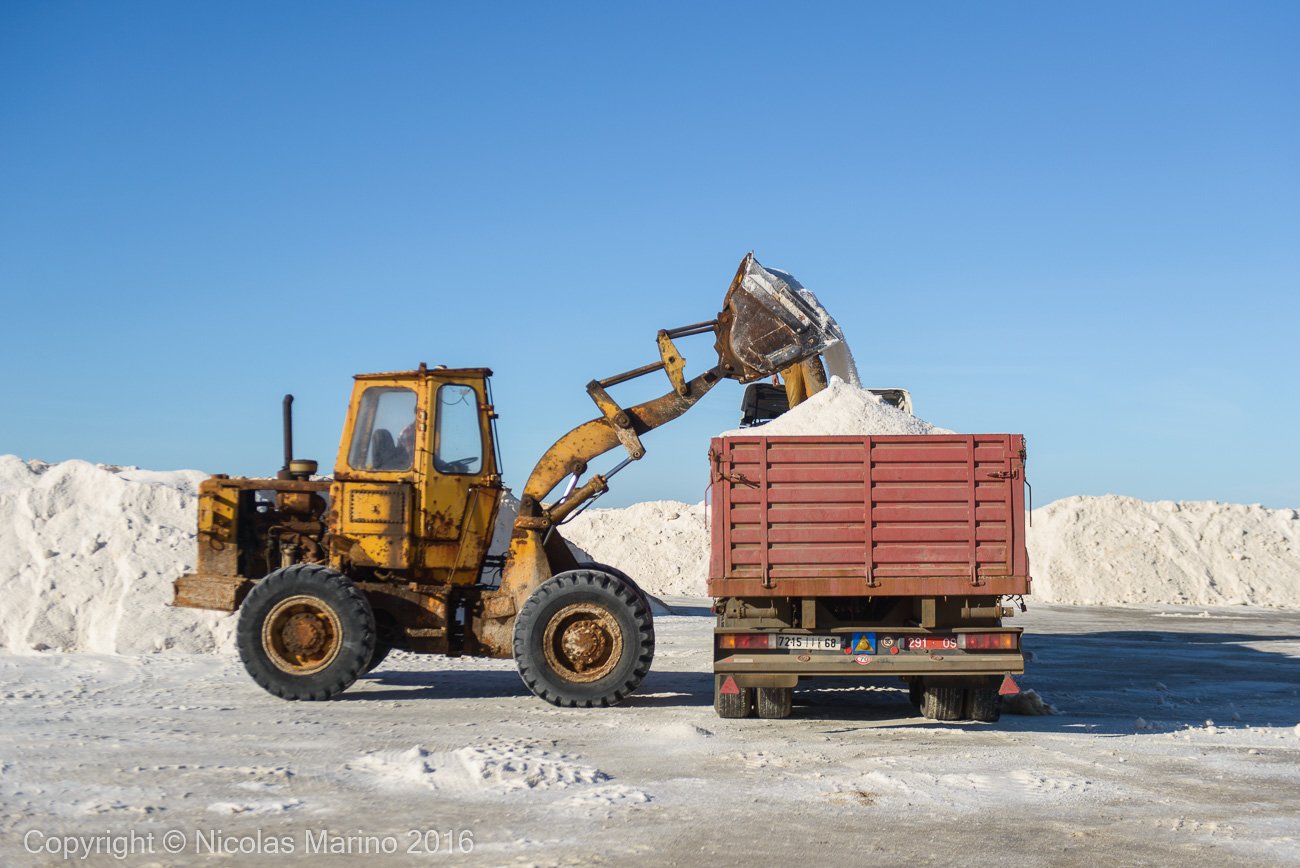The psychological effort I need to leave this service station is immeasurable. There is nothing around it in about 200 km in every direction, so it’s the closest to an oasis of comfort that I have experienced in many days of non-stop beating. The very thought of leaving sends vibrations of reluctance throughout my body.
At this point of low spirits, drained energy and bad predisposition, it becomes increasingly difficult for me to enjoy the events of ephemeral beauty that appear from time to time. The heavy burden of my broken mood is like a veil that blurs everything worth being appreciated. It is in this mindset that I keep going, trying to develop patience beyond my limitations so that at least the negativity doesn't deprive me of potential moments of joy.
After enduring yet another session of raw, wind-blown sadism on the second day after leaving the station, the sunset lifts me from the depths of delusion to the surface of well-being. It is a moment of aesthetic oxygen in which the dunes turn white like a prairie covered in icy snow. The sun, already touching the horizon, extends its rays like tentacles to cling to the earth. The result is a dance of amber and honey tones on the textured surface changed in real-time by the whims of the winds. There I stop the bicycle and collapse on the handlebars to contemplate, breathing the surrealism of a visual worthy of a Dalí painting. These are the kind of moments that resuscitate my spirits.
Despite the adversity, the miles keep ticking by, and two days later I find myself pedalling along the edge of the continent. When the hardness of the surface allows it, I go off the road a few hundred meters to reach the edge of Africa, the abyss in which the desert dies. In front of me and dozens of meters of free fall below, the Atlantic shines, stretching to the horizon like a field of blue, turquoise and green flagstones. To my left and right, to the south and north, I see the cutout that outlines the abrupt end of the west coast of North Africa. The power of beauty overwhelms for the first time in a long time the negative forces that have possessed me so far. It is a moment of glory, of sublimation, in which I merge with my surroundings, transcending all mental states. I can feel the earth elevate the discourse of beauty, traversing me with images of dramatic poetry.
Meanwhile, the enemy continues to blow with his belligerent whistle, but now he finds resistance when it crashes against the cliffs. They seem to say, 'Enough! This is how far you've come!'. Far from resisting, it perseveres, writhing in a virulent game of pressure and suction. Whirlwinds of protest rise to play echoes and dissonant melodies that sift its violence. In the middle of this debacle there is me, that I’ve been wishing to be fluff for days, next to my bike with its front wheel flirting with the abyss. The aesthetic and energetic forces of the planet combine to bring that desire to fruition. I am here, no longer contemplating, but being traversed by an experience that exacerbates my insignificance. If there was any doubt why I am subjecting myself to this exercise of continuous scourge, today I already have the answer.
Time passes unnoticed while I contemplate the scenery. I am hypnotised by the tide that throws a continuous set of waves from the sea with the constancy of a metronome. While I gaze at the ocean, a part of me wants to stay and contemplate this greatness so obstinate in reducing me to insignificance. It is nature's way of giving me great lessons on humility. On the other hand, I feel an instinctive deep rejection of the idea of returning to the torment that I experience every day on my bike. That's the part of me that insists I stay. The problem is that I know very well that the longer I stay, the more difficult it will be for me to start again. Therefore, it is with deep regret that after two hours of compulsive hesitation; I push the bike back to the road. There, where my gaze gets lost on the horizon, observing the point where the road disappears, as in so many vanishing point perspectives, I have drawn in university. Nothing changes, the uneasiness is the same. Standing in absolute solitude, I feel the invisible wall pushing me as if I had a bulldozer trying to keep me at bay by force. It is impossible to describe the conflict I experience when I want to reactivate my muscles and put my feet on the pedals. The act involves going against my will. A daunting task that requires delving into every corner of myself to find energy, when my whole body and my mind conspire to make me give up. I can't detect where or how I find it, but I get moving, or at least I move within what is possible.
I keep progressing at a rate of about 50 km per day, taking me between 12 and 15 hours to complete. It may sound like too little or too much, but the fact is that, as the wind grinds your mind, it becomes disturbing and mind-numbing. The cold and weakness that I feel result from days eating old bread, biscuits and canned sardines. The lack of a stove prevents me from cooking. Although if I had one, it wouldn't be of much use to me in this immensity in which the wind subdues anything attempting to light up. Nothing gets easier as the days go by. Quite the opposite. Everything becomes more difficult as my body and mind weaken. In fact, every day is more brutal, until the point at which I can't go any further. It is no longer my lack of will nor my unease or even the lack of energy. I can't move my body or bike forward anymore. I stand on the bike and can't even move it. To no avail, I am investing every single one of my forces on the pedals. The most I can do is stay up for a few miserable seconds until I lose my balance and fall. It is much more difficult for me to push here than in the mud of the Congo swamp in which I got trapped months ago. This is how far I’ve come, at least until the wind slows down. GAME OVER. I've tolerated everything up to now, but there's nothing I can do if there's no strength that is enough to move at least an inch forward. The very fact of being stopped here, standing in the middle of nowhere, is already a physical effort. I divert to the edge of the road, placing the bike in a shield-like fashion to survive this transparent torture. I sit on the ground and wait, but I don't know what I'm really waiting for. However, since I can't move, I can only wait.
10, 20, 30, 50, 1 hour goes by and the wind redoubles its bet. I turn my back to it. I'm cold, but the blanket of sand that forms on me doesn't keep me warm. Facing the opposite direction, wrapped like a mummy in the turban and behind my glasses, I resist the acupuncture session as much as I can. I can't take it anymore to feel it push me, shove me, and slap me around. It is as though a ghost were beating me down, oppressing me, humiliating me. I am crouched down, wanting to cry without being able to. At least at this moment, I feel that this is one of the ugliest feelings I've ever experienced. My mind is gone and my body beaten. At that point, a black dot appears on the horizon. It takes a long time until it shapes as a truck on the road. I no longer have pride, I no longer have dignity, I will stop in the middle of the road if necessary, as long as it stops to take me. Being here no longer makes any sense to me. Luckily, I don't have to get to such an extreme. If I had, the Scania's fight against the wind is so brutal that its speed couldn't have killed me anyway. The truck stops with almost no effort. I'd wager the driver didn't even have to hit the brake pedal, just lift his foot off the accelerator. The situation I find myself in is so clear that neither he nor his son ask me questions when they get off. They immediately help me load the bicycle and rest it on the mountain of salt that they carry in the trailer.
As soon as I climb into the cab and close the door behind me, something happens to me that disorients me. I take a while to figure out what has changed or what is happening to me. After a few minutes, I realise it is the first time I have experienced in I don't know how long, the absence of the torment of the wind. After days of eroding my skull 24 hours a day, the difference I feel is so great that even though the engine is running, I feel in heavenly silence. Similar to the one that follows, turning off a speaker that has been stunning you for weeks. After days of straining to even stand upright, I now feel light, as if someone had lifted an anchor off me. Such is the effect the wind has had on me. That is why I need several minutes to get out of the mental eclipse and start a conversation with Mohammed, who now shifts to first gear to continue heading north.
Soon after resuming the journey, I realise I am not the only victim of this unscrupulous sadist. I can hear the Scania's engine in agony against it too. Where I sit, in the middle, between Mohammed and his son, I feel the cabin shaking from side to side like a maraca in Rio’s carnival. It is as if we were cutting through the atmosphere to enter back to earth. When the gusts strike, I see Mohammed redoubling his push on the accelerator to respond to the impact and prevent the truck from stopping. When he notices my astonishment, he tells me that heading north to the salt mine consumes three times more fuel than going south. Because of that, he concludes:-"I don't know why you do this"-To which I respond with a laugh: "Me neither!". Sitting there in the cabin's comfort, looking down on the desert, I feel comfortable and protected. My intention is to pass this stretch, the worst of all, and get off to continue on the bike once I can at least move forward.
For the rest of the afternoon I travel with them, stopping over at the salt flat where we spend an hour loading the truck even more. There, I walk around a little and stretch other sets of muscles. 200 km later, we arrive at a service station on the turnoff to Dakhla, where I decide to get off. Although they have given me a huge hand at a terrible time when I had no choice, I want to try my luck again by getting back on the bicycle. I will not lie. I must summon strength from the deepest corner of my consciousness to overcome the temptation to end this nightmare by truck. The effort I take to let go of the comfort of the Scania's cabin is comparable to what I've been doing pedalling against the wind, but I get off.
That same afternoon, I end the day in the service station's canteen, where I extend my shelter from the wind. As I sip mint tea, I notice that a man sitting at the next table is trying to make eye contact with me. He wears a brown hooded robe that reminds me of Obi Wan Kenobi. He initiates the conversation in French until I tell him I'm Argentine, at which point he switches to speaking Spanish with a perfect Spanish accent. The sudden change surprises me, because the last thing I expected was to find a Spaniard here, but I'm wrong again. He is not Spanish; he is in fact a Saharaui. Many of them adopted the language when Spain controlled Western Sahara. I spend some time to adjust to my new interlocutor because I have a hard time guessing his intention. From time to time he speaks to me, almost whispering, with obvious suspicion. He sometimes seems paranoid, monitoring his surroundings, watching like a fugitive that has just fled prison. However, everything becomes clear soon. When he explains to me, he must be very careful when speaking because there are always Moroccan spies controlling the Saharaui. With caution, looking for catharsis, he unburdens himself on me. He gives me a detail account of the misery that his people live under the police regime with which the Moroccan government subjugates his nation. His stories give me chills. They are like the ones I already know from so many conversations I have had with Tibetans throughout my travels in Tibet. Just as quickly as he came to talk to me, he leaves until I see him through the windows disappear like a ghost into the desert.
When it gets dark outside, I switch from mint tea to ordering a large tagine just for myself. At the surrounding tables, I see up to four people sharing it. I have such an appetite for flavour and energy that I am certain that I will need two. By the time I finish, I wonder whether Moroccans eat very little, or my food deficit already reaches that of the equivalent food to feed 8 people. Whatever the case, I feel grateful for today. First, Mohammed and his son came to rescue, which allowed me this pleasant psychological and physical break after such a dreadful day. Then there's the shelter of this austere cafeteria where I feel protected from the rawness of the elements. Last but not least, there's the comfort of this delicious food. I can't ask for more, really.
